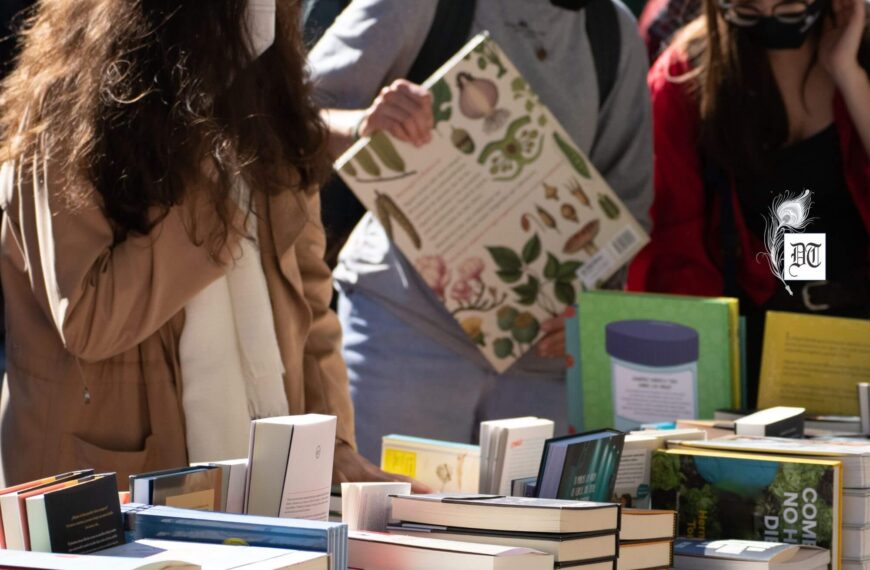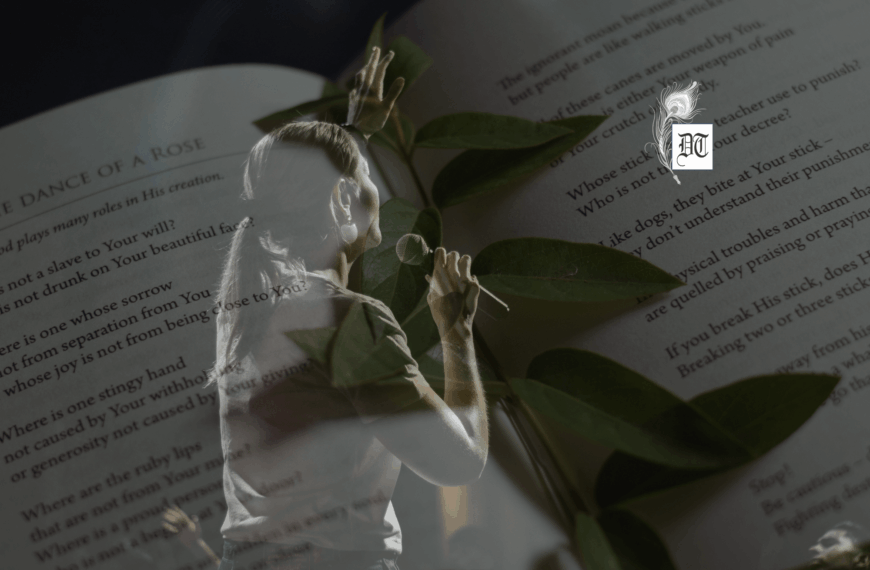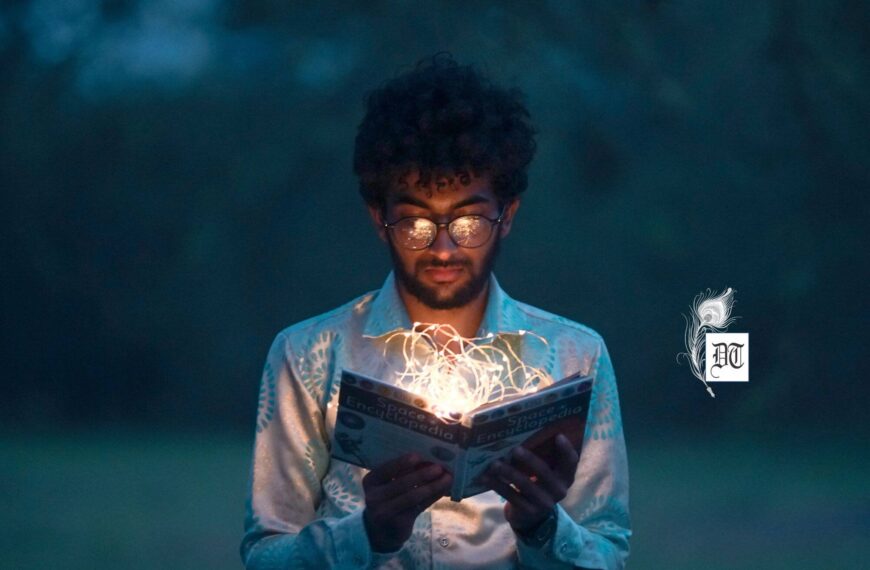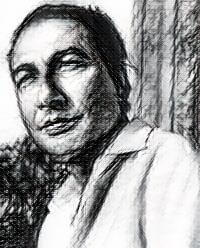Renowned writers have dealt with love, seduction and sex aesthetically and sensitively. Ratan takes a close look into the so-called ‘Victorian taboos’ and shows us how these ‘three sirens’ of literature have been handled by various writers. Here’s a critique.
Love, seduction and sex are the three sirens of literature. In the hands of a good writer, love, seduction and sex reveal more about people and their relations with one another than we ever get to see in real life. There will always be readers ready to be offended. But, there will also be people, who read good writing on love, seduction and sex and feel thankful to the writers.
Love between man and woman has always been a theme of Hindu poetry. With Kalidasa, the Shakespeare or Goethe of classical Sanskrit literature that flourished in the first half of the fifth century, in then reign of Chandra Gupta, love between the sexes was a principal motif of his epic, lyric and dramatic works.
But when a Hindu speaks of his love-literature, he thinks first and foremost of the mediaeval pastoral lyrics. The Padabali, which may be conveniently described as the ‘Idylls of Radha’, of which Radha is the heroine and Krishna or Kanu, her lover. In mediaeval Bengal writers on love were legion. They are commonly known as the minstrels of Vaishnavism, a cult of \Bhakti or devotion, which corresponds to the Jodo Buddhism of Japan and the Sufi mysticism of Persia. In Vaishnava parlance, the name, Krishna, is divine, and Radha semi-divine. Radha-Krishna literature is thus liable to be regarded as an allegory of the mystical union between god and the soul.
This scribe pleads for a thoroughly human and secular interpretation, unless, of course, the relation between the sexes is considered as something spiritual or divine. The treatment of love by Vaishnava poets, by Vidyapati, in particular, is so plainly and emphatically in the language of the senses, that it is impossible to read any super-sensual meaning into it. If sexual love is mysticism, Vidyapati is a mystic. It has been a tendency among scholars, both Indian and foreign, writing on Hindu history, philosophy, science, literature, arts and crafts, and even industry, to label: the successive stages in the evolution.
Victorian literature, which was dominated by moralists like ever boring Arnold and those two disgusting  lecture giving Newman and Carlyle, love, sex and seduction were three sacrilegious themes. With Jane Austen focusing so much on the need for marriage, seduction could not be avoided in Pride and Prejudice because of a lovely girl, Lydia. It is in Hardy’s novel for the first time we get a real sizzler. He pioneered smuggled sex pooh-poohing the constraints of the Victorian Prude in Tess of the D’ Urbervilles, which is one such novel where Tess found her guardian angel in a seducer. That was a humble beginning and we in a rapid march got Ulysses and Lady Chatterley’s Lover.
lecture giving Newman and Carlyle, love, sex and seduction were three sacrilegious themes. With Jane Austen focusing so much on the need for marriage, seduction could not be avoided in Pride and Prejudice because of a lovely girl, Lydia. It is in Hardy’s novel for the first time we get a real sizzler. He pioneered smuggled sex pooh-poohing the constraints of the Victorian Prude in Tess of the D’ Urbervilles, which is one such novel where Tess found her guardian angel in a seducer. That was a humble beginning and we in a rapid march got Ulysses and Lady Chatterley’s Lover.
 In Fifty Shades of Grey, Anastasia Steele begins the book as a virgin, who has never masturbated, yet the first time she and Christian Grey have sex, she has orgasms easily with no clitoral stimulation. Hollywood peddles a similar myth in which people are perpetually having unsuccessful sex standing up in the kitchen. When literature student Anastasia Steele goes to interview young entrepreneur Christian Grey, she encounters a man who is handsome, brilliant, and intimidating. The unworldly, innocent Ana is startled to realise she wants this man and, despite his enigmatic reserve, finds she is desperate to get close to him. Unable to resist Ana’s quiet beauty, wit, and independent spirit, Grey admits he wants her, too — but on his own terms. Shocked yet thrilled by Grey’s singular erotic tastes, Ana hesitates. For all the trappings of success — his multinational businesses, his vast wealth, his loving family — Grey is a man tormented by demons and consumed by the need to control. When the couple embarks on a daring, passionately physical affair, Ana discovers Christian Grey’s secrets and explores her own dark desires. Erotic, amusing, and deeply moving, the Fifty Shades Trilogy is a tale that will obsess you, possess you, and stay with you forever.
In Fifty Shades of Grey, Anastasia Steele begins the book as a virgin, who has never masturbated, yet the first time she and Christian Grey have sex, she has orgasms easily with no clitoral stimulation. Hollywood peddles a similar myth in which people are perpetually having unsuccessful sex standing up in the kitchen. When literature student Anastasia Steele goes to interview young entrepreneur Christian Grey, she encounters a man who is handsome, brilliant, and intimidating. The unworldly, innocent Ana is startled to realise she wants this man and, despite his enigmatic reserve, finds she is desperate to get close to him. Unable to resist Ana’s quiet beauty, wit, and independent spirit, Grey admits he wants her, too — but on his own terms. Shocked yet thrilled by Grey’s singular erotic tastes, Ana hesitates. For all the trappings of success — his multinational businesses, his vast wealth, his loving family — Grey is a man tormented by demons and consumed by the need to control. When the couple embarks on a daring, passionately physical affair, Ana discovers Christian Grey’s secrets and explores her own dark desires. Erotic, amusing, and deeply moving, the Fifty Shades Trilogy is a tale that will obsess you, possess you, and stay with you forever.
Fifty Shades is not literature but erotica. It takes you to the border that literary sex inevitably shares with pornography.
Nancy Huston, the winner of the Literary Review’s Bad Sex in Fiction Award, 2012, demonstrates how not to do it in her novel Infrared, “My sex swimming in joy like a fish in water, myself freed of both self and other, the quivering sensation, the carnal pink palpitation that detaches you from all colour and all flesh, making you see only stars, constellations, milky-ways…”
Erica Jong’s Fear of Dying (shortlisted for last year’s Bad Sex Award) attempts neutral precision that we find in the Ulysses of James Joyce. In The Unbearable Lightness of Being, Milan Kundera’s sex-obsessed hero, Tomáš, knows that people are at base very similar: “There is one-millionth part dissimilarity to nine hundred ninety-nine thousand nine hundred ninety-nine millionths parts similarity”. Think of Thom Gunn’s poem Carnal Knowledge, which starts, “Even in bed I pose” and concludes each verse with the refrain “I know you know I know you know I know”. It is this complexity that makes sex such rich fictional material, such a worthy challenge for the novelist. Jonathan Franzen in Freedom is seen dirtying and deepening Joey’s long-distance relationship with Connie, as they discover the fragile weirdness of sexual fantasy.
In Larissa Lone’s Passion Unleashed forbidden temptations are described with gusto. Serena Kelley is an archaeologist and treasure hunter and a woman with a secret. Since she was seven, she’s been the keeper of a powerful charm that grants her health and immortality . . . as long as she stays a virgin. But Serena isn’t all that innocent. And when a dangerously handsome stranger brings her to the brink of ecstasy, she wonders if she’s finally met the one man she cannot resist. In this book, we get pictures of fatal desires. Wraith is a demon with a death wish. But when an old enemy poisons him, he must find Serena and persuade her to give him the only known antidote in the universe, her charm. Yet, as she begins to surrender to his seductions and Wraith senses the cure is within his grasp, he realises a horrible truth: He’s falling for the woman, whose life he must take in order to save his own.
Of the two debut collections of short stories here, Arlene Heyman’s Scary Old Sex is the most explicit, tackling, among other things, the realities of sex in old age. In The Loves of Her Life, Marianne is sixty-five and Stu is seventy:“Spontaneity was difficult. She had acid reflux, andso had to stay upright for two or three hours after a meal or else suffer burning pains in her chest. Bared to You by Sylvia Day is another book on sex and desire.
With the New York Times bestselling author Sylvia Day we have the provocative masterstroke of abandon and obsession that redefined the meaning of desire, and became a global phenomenon. At one part of the novel there is a provocative narrative: “Gideon Cross came into my life like lightning in the darkness…. He was beautiful and brilliant, jagged and white-hot. I was drawn to him as I’d never been to anything or anyone in my life. I craved his touch like a drug, even knowing it would weaken me. I was flawed and damaged, and he opened those cracks in me so easily…Gideon knew. He had demons of his own. And we would become the mirrors that reflected each other’s most private wounds…and desires.
 A Hunger like No Other by Kresley Cole introduces a sizzling new series with this tale of a fierce werewolf and a bewitching vampire — unlikely soul mates, whose passion will test the boundaries of life and death. In Cherrie Lynn’s Rock Me, loving is losing. Candace Andrews has had enough of pleasing others. In an act of birthday rebellion, she sets out to please herself — by walking into the tattoo parlour owned by her cousin’s ex-boyfriend. All she wants is a little ink, and Brian’s just the guy to give it to her.
A Hunger like No Other by Kresley Cole introduces a sizzling new series with this tale of a fierce werewolf and a bewitching vampire — unlikely soul mates, whose passion will test the boundaries of life and death. In Cherrie Lynn’s Rock Me, loving is losing. Candace Andrews has had enough of pleasing others. In an act of birthday rebellion, she sets out to please herself — by walking into the tattoo parlour owned by her cousin’s ex-boyfriend. All she wants is a little ink, and Brian’s just the guy to give it to her.
In NM Silber’s The Law of Attraction, two lawyers fell in love. Gabrielle Ginsberg was a public defender with plenty of nerve and Braden Pierce was an assistant district attorney with a whole lot of swagger. Gabrielle wanted Braden and Braden wanted Gabrielle. And Cameron wanted Gabrielle. And Marla wanted Braden. And Cole wanted Gabrielle. And Mrs. Mason wanted Braden. And an anonymous letter writer wanted to keep Gabrielle and Braden apart.
Together Gabrielle and Braden discovered many important things, like which doors at the courthouse actually locked and that desks could be useful for more than writing. They also found out that the path of love was not always smooth, and it was sometimes trod upon by some really wacky people, like a confused fanny grabber, an eighty-two year old pothead and a gentleman who threw a wine and cheese party in his pants. Could true love overcome a lack of privacy, interference by jealous rivals and the insanity of the criminal court system?
In Walsh’s collection, the word games are always clever, never cloying, or whimsical.
Lina Wolff’s Bret Easton Ellis and the Other Dogs (translated by Frank Perry) advertises its sexual content and feminist credentials on the dust jacket. Of the two experimental pieces in the Readux Weird Sex series (made up of four short books about sex). Of these, Rut Hillarp’s The Black Curve (translated by Saskia Vogel) is an unsuccessful attempt to articulate love in the abstract. The title comes from a painting by the female character, charting curves that aren’t found in books.
Pix from Net




 By
By
 By
By
